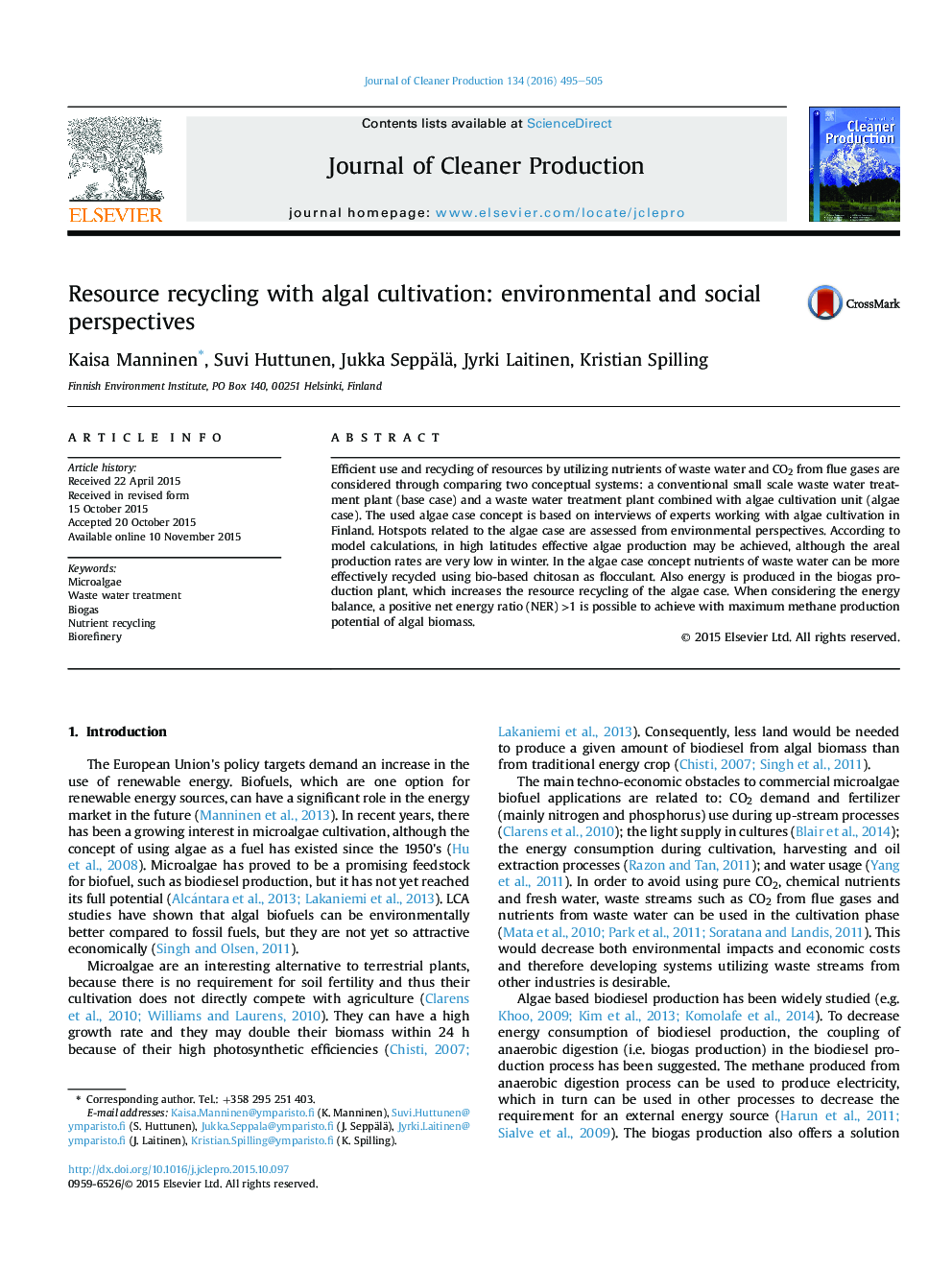| Article ID | Journal | Published Year | Pages | File Type |
|---|---|---|---|---|
| 1744012 | Journal of Cleaner Production | 2016 | 11 Pages |
•The biorefinery concept is a promising technology for the recycling of waste streams.•Land requirement of algal ponds would enlarge drastically in winter months.•Electricity consumption is higher than production in algae case.•Experts' perceptions are valuable to explore feasibility and social impacts.
Efficient use and recycling of resources by utilizing nutrients of waste water and CO2 from flue gases are considered through comparing two conceptual systems: a conventional small scale waste water treatment plant (base case) and a waste water treatment plant combined with algae cultivation unit (algae case). The used algae case concept is based on interviews of experts working with algae cultivation in Finland. Hotspots related to the algae case are assessed from environmental perspectives. According to model calculations, in high latitudes effective algae production may be achieved, although the areal production rates are very low in winter. In the algae case concept nutrients of waste water can be more effectively recycled using bio-based chitosan as flocculant. Also energy is produced in the biogas production plant, which increases the resource recycling of the algae case. When considering the energy balance, a positive net energy ratio (NER) >1 is possible to achieve with maximum methane production potential of algal biomass.
